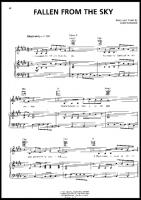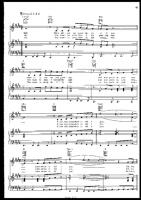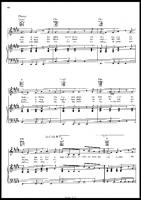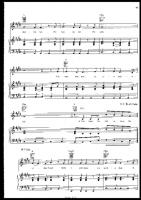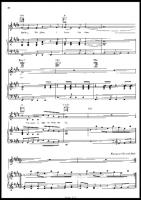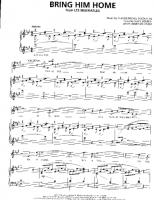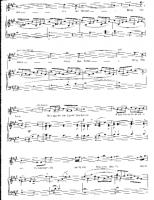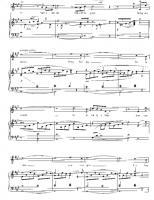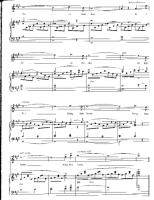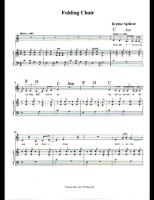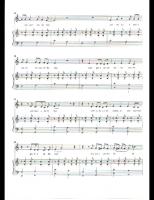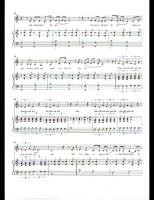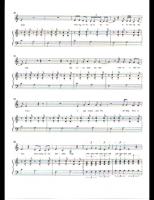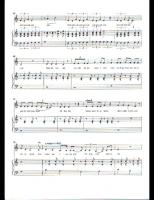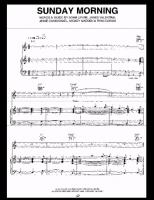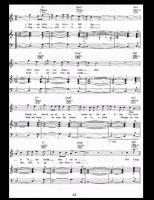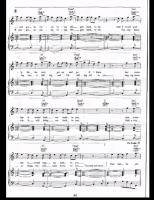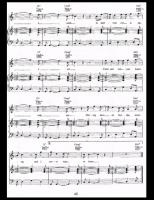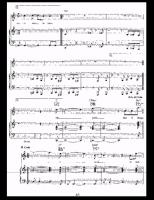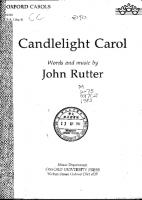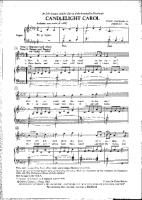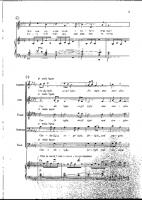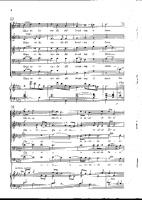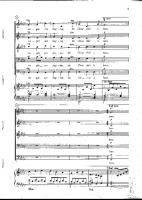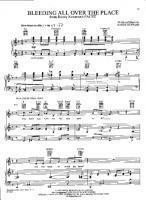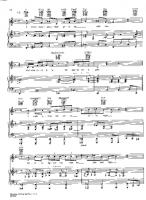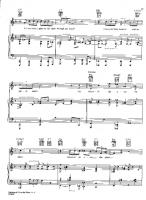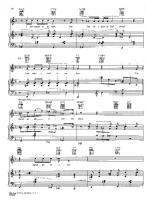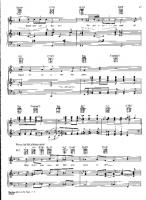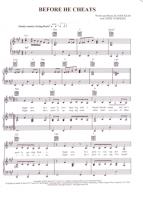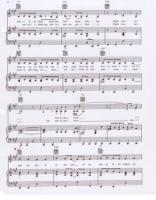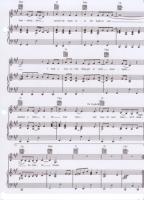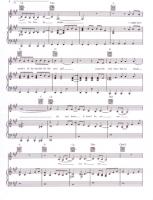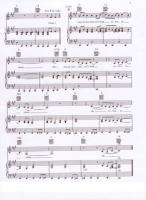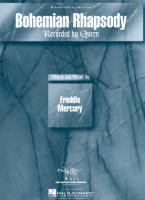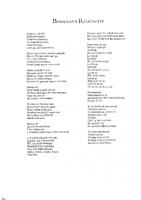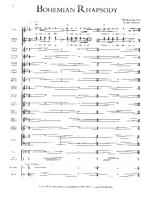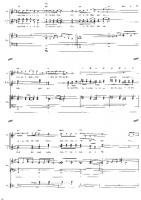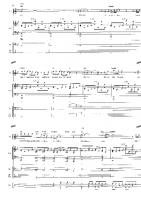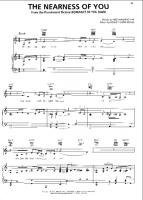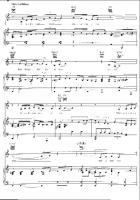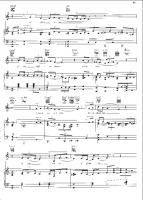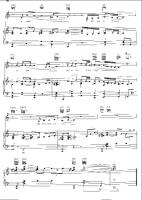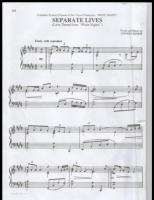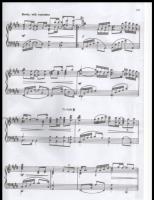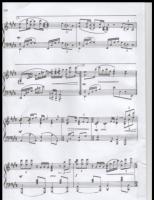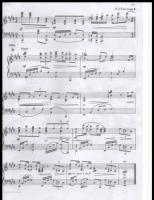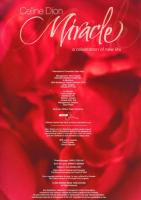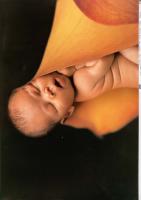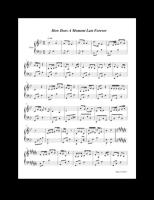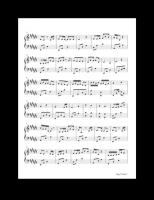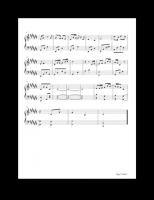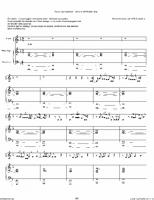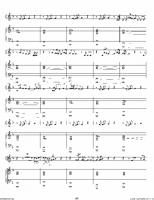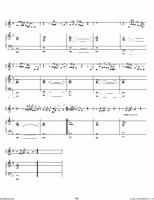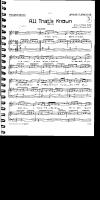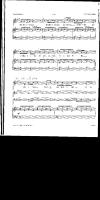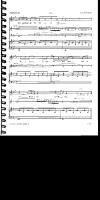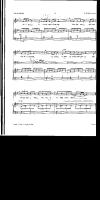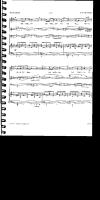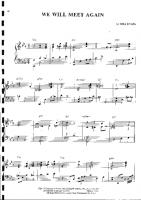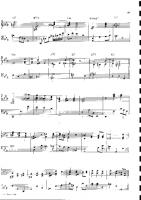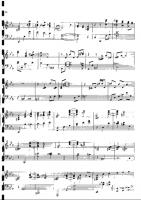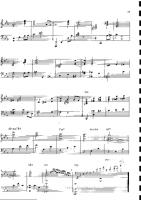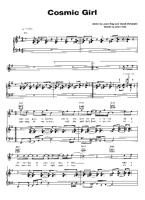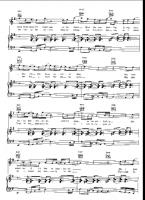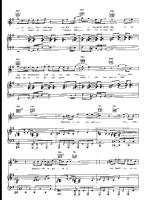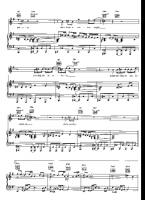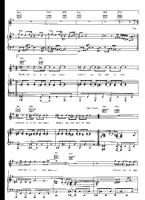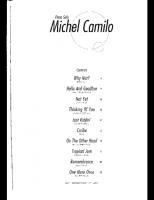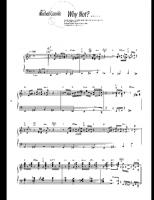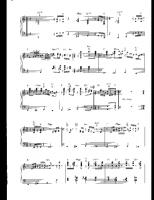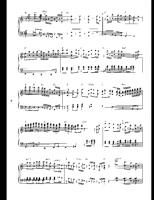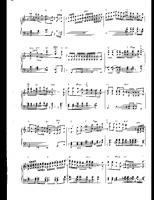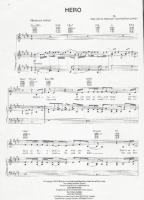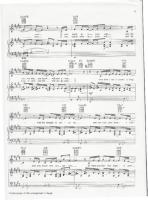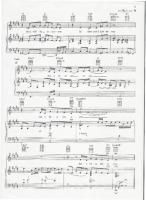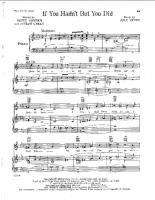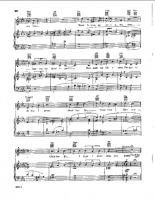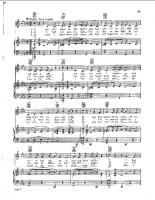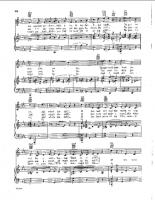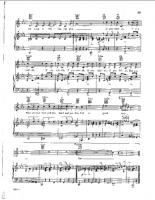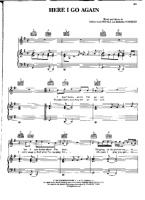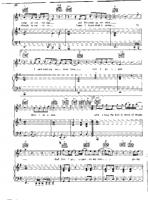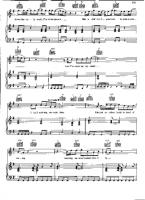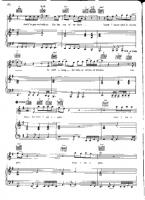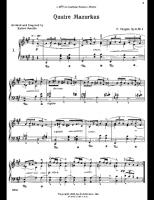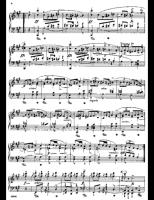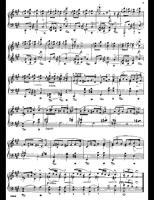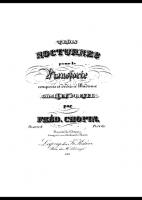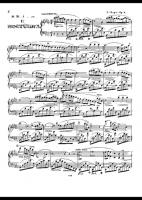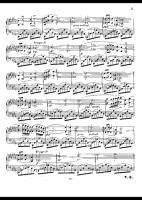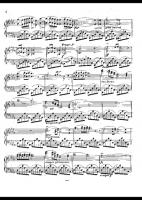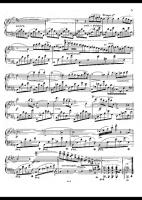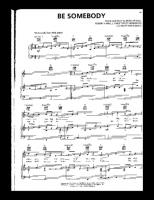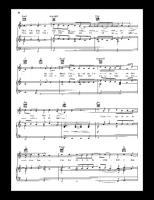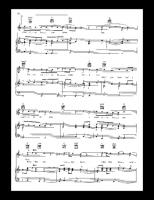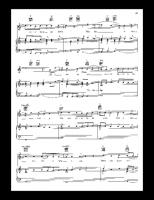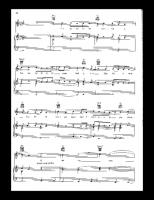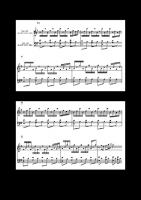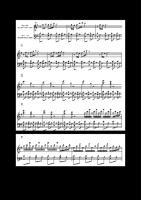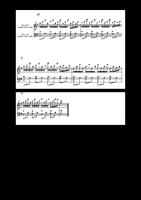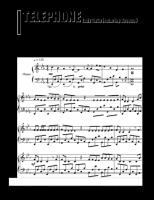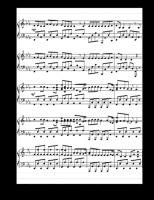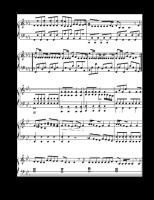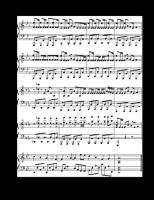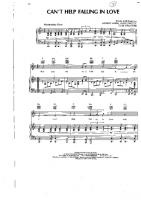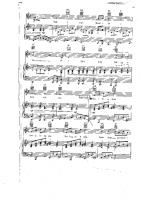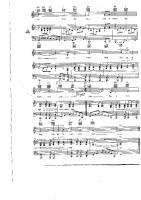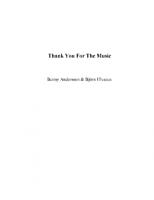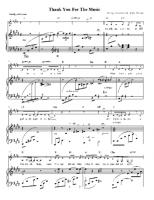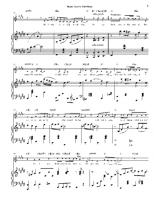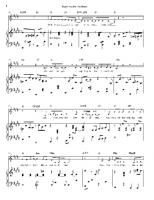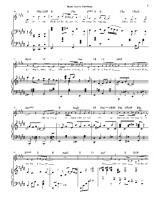Piano Sheet Music
 "Neil Young played Helpless, and by the time he finished, we (Crosby, Stills & Nash) were asking him if we could join his band" David Crosby / Byrds / Crosby, Stills, Nash & Young
"Neil Young played Helpless, and by the time he finished, we (Crosby, Stills & Nash) were asking him if we could join his band" David Crosby / Byrds / Crosby, Stills, Nash & Young
Donald Fagen
 Donald Jay Fagen (born January 10, 1948) is an American musician best known as the co-founder, lead singer and keyboardist of the band Steely Dan.
Donald Jay Fagen (born January 10, 1948) is an American musician best known as the co-founder, lead singer and keyboardist of the band Steely Dan.
Glen Hansard
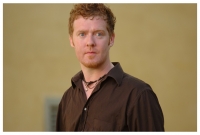 Glen Hansard (born 21 April 1970 in Dublin, Ireland) is the principal songwriter and vocalist/guitarist for Irish rock group The Frames. He is also known for starring in the film Once and co-writing its Academy-Award-winning song, "Falling Slowly."
Glen Hansard (born 21 April 1970 in Dublin, Ireland) is the principal songwriter and vocalist/guitarist for Irish rock group The Frames. He is also known for starring in the film Once and co-writing its Academy-Award-winning song, "Falling Slowly."David Benoit
 David Bryan Benoit (born August 18, 1953) is an American jazz pianist, composer and producer from Los Angeles, California. Benoit has charted over 25 albums since 1980, and has been nominated for three Grammy Awards. He is also music director for the Asia America Symphony Orchestra and the Asia America Youth Orchestra.
David Bryan Benoit (born August 18, 1953) is an American jazz pianist, composer and producer from Los Angeles, California. Benoit has charted over 25 albums since 1980, and has been nominated for three Grammy Awards. He is also music director for the Asia America Symphony Orchestra and the Asia America Youth Orchestra.
Chitty Chitty Bang Bang
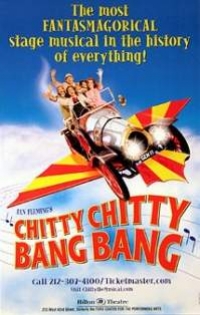 Chitty Chitty Bang Bang, also known as Chitty the Musical, is a stage musical based on the 1968 film produced by Cubby Broccoli. The music and lyrics were wriiten by Richard and Robert Sherman with book by Jeremy Sams. It opened in the West End at the London Palladium theatre on April 16, 2002 with six new songs by the Sherman Brothers who wrote the original academy award nominated title and song score as well. The London production, directed by Adrian Noble with musical staging and choreography by Gillian Lynne, closed in September 2005.
Chitty Chitty Bang Bang, also known as Chitty the Musical, is a stage musical based on the 1968 film produced by Cubby Broccoli. The music and lyrics were wriiten by Richard and Robert Sherman with book by Jeremy Sams. It opened in the West End at the London Palladium theatre on April 16, 2002 with six new songs by the Sherman Brothers who wrote the original academy award nominated title and song score as well. The London production, directed by Adrian Noble with musical staging and choreography by Gillian Lynne, closed in September 2005.
Professor Longhair
 Henry Roeland "Roy" Byrd (December 19, 1918 – January 30, 1980), better known as Professor Longhair or "Fess" for short, was a New Orleans blues singer and pianist. He was active in two distinct periods, first in the heyday of early rhythm and blues and later in the resurgence of interest in traditional jazz after the founding of the New Orleans Jazz and Heritage Festival in 1970. His piano style has been described as "instantly recognizable, combining rumba, mambo, and calypso."
Henry Roeland "Roy" Byrd (December 19, 1918 – January 30, 1980), better known as Professor Longhair or "Fess" for short, was a New Orleans blues singer and pianist. He was active in two distinct periods, first in the heyday of early rhythm and blues and later in the resurgence of interest in traditional jazz after the founding of the New Orleans Jazz and Heritage Festival in 1970. His piano style has been described as "instantly recognizable, combining rumba, mambo, and calypso."The music journalist Tony Russell (in his book The Blues: From Robert Johnson to Robert Cray) wrote that "The vivacious rhumba-rhythmed piano blues and choked singing typical of Fess were too weird to sell millions of records; he had to be content with siring musical offspring who were simple enough to manage that, like Fats Domino or Huey "Piano" Smith. But he is also acknowledged as a father figure by subtler players like Allen Toussaint and Dr. John."
Les Miserables
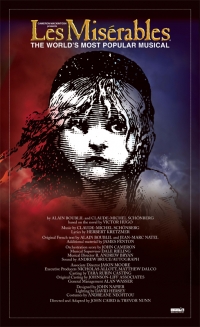 Les Misérables, colloquially known as Les Mis or Les Miz, is a musical composed in 1980 by the French composer Claude-Michel Schönberg with a libretto by Alain Boublil. Sung through, it is perhaps the most famous of all French musicals and one of the most performed musicals worldwide. On October 8, 2006, the show celebrated its 21st anniversary and became the longest-running West End musical in history and is still running (though it has changed venues).
Les Misérables, colloquially known as Les Mis or Les Miz, is a musical composed in 1980 by the French composer Claude-Michel Schönberg with a libretto by Alain Boublil. Sung through, it is perhaps the most famous of all French musicals and one of the most performed musicals worldwide. On October 8, 2006, the show celebrated its 21st anniversary and became the longest-running West End musical in history and is still running (though it has changed venues).Among the most famous songs of this Tony award-winning musical are "I Dreamed a Dream", "One Day More", "A Heart Full of Love", "Stars", "Bring Him Home", "Do You Hear the People Sing?", "Master of the House", and "On My Own."
The musical is based on the 1862 novel Les Misérables by Victor Hugo. Set in early 19th century France, it follows the intertwining stories of a cast of characters as they struggle for redemption and revolution. The characters include a paroled convict named Jean Valjean who, failing attempts to find work as an honest man with his yellow ticket of leave, breaks his parole and conceals his identity; the police inspector Javert who becomes obsessed with finding Valjean; Fantine, the single mother who is forced to become a prostitute to support her daughter; Cosette, who eventually falls in love with a French student named Marius Pontmercy. After Fantine dies, Cosette becomes Jean Valjean's adopted daughter; the Thénardiers, the unscrupulous innkeepers who thrive on cheating and stealing; Éponine, their young daughter who is hopelessly in love with Marius; Gavroche, a young beggar boy; and student leader Enjolras who plans the revolt to free the oppressed lower classes of France. The main characters are joined by an ensemble that includes prostitutes, student revolutionaries, factory workers, and others.
Regina Spektor
 Regina Spektor (born February 18, 1980) is a Soviet-born Jewish-American singer-songwriter and pianist. Her music is associated with the anti-folk scene centered on New York City's East Village.
Regina Spektor (born February 18, 1980) is a Soviet-born Jewish-American singer-songwriter and pianist. Her music is associated with the anti-folk scene centered on New York City's East Village.Spektor has said that she has created 700 songs, but that she rarely writes any of them down. She has also stated that she never aspired to write songs herself, but songs seem to just flow to her. Spektor possesses a broad vocal range and uses the full extent of it. She also explores a variety of different and somewhat unorthodox vocal techniques, such as verses composed entirely of buzzing noises made with the lips and beatbox-style flourishes in the middle of ballads, and also makes use of such unusual musical techniques as using a drum stick to tap rhythms on the body of the piano or chair.
Her lyrics are equally eclectic, often taking the form of abstract narratives or first-person character studies, similar to short stories or vignettes put to song. Spektor usually sings in English, though she sometimes includes a few words or verses of Latin, Russian, French, and other languages in her songs.
Maroon 5
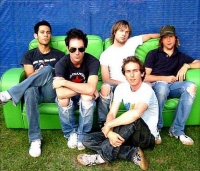 Maroon 5 is a Grammy Award-winning American pop rock band. Formed with only two members at the French Woods Festival of the Performing Arts and expanded in Los Angeles, the group comprises five members: Adam Levine (lead vocals, rhythm guitar), James Valentine (lead guitar, backing vocals), Jesse Carmichael (keyboards, rhythm guitar, backing vocals), Mickey Madden (bass guitar), and Matt Flynn (drums, percussion).
Maroon 5 is a Grammy Award-winning American pop rock band. Formed with only two members at the French Woods Festival of the Performing Arts and expanded in Los Angeles, the group comprises five members: Adam Levine (lead vocals, rhythm guitar), James Valentine (lead guitar, backing vocals), Jesse Carmichael (keyboards, rhythm guitar, backing vocals), Mickey Madden (bass guitar), and Matt Flynn (drums, percussion).
John Rutter
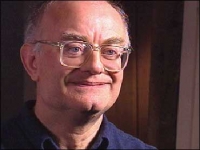 John Milford Rutter CBE (born 24 September 1945) is a British composer, conductor, editor, arranger and record producer, mainly of choral music.
John Milford Rutter CBE (born 24 September 1945) is a British composer, conductor, editor, arranger and record producer, mainly of choral music.
Randy Newman
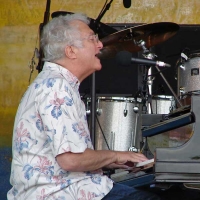 Randall Stuart “Randy” Newman (born November 28, 1943) is an American singer/songwriter, arranger, composer, and pianist who is notable for his mordant (and often satirical) pop songs and for his many film scores.
Randall Stuart “Randy” Newman (born November 28, 1943) is an American singer/songwriter, arranger, composer, and pianist who is notable for his mordant (and often satirical) pop songs and for his many film scores.Newman is noted for his practice of writing lyrics from the perspective of a character far removed from Newman's own biography. For example, the 1972 song "Sail Away" is written as a slave trader's sales pitch to attract slaves, while the narrator of "Political Science" is a U.S. nationalist who complains of worldwide ingratitude toward America and proposes a brutally ironic final solution. One of his biggest hits, "Short People" was written from the perspective of "a lunatic" who hates short people. Since the 1980s, Newman has worked mostly as a film composer. His film scores include Ragtime, Awakenings, The Natural, Leatherheads, James and the Giant Peach, Meet the Parents and Seabiscuit. He has scored five Disney-Pixar films: Toy Story, A Bug's Life, Toy Story 2, Monsters, Inc. and Cars. Most recently he scored Princess and the Frog and is set to return for Toy Story 3 and Cars 2.
He has been singled out for a number of awards by his colleagues, including an Academy Award, two Emmy Awards, four Grammy Awards, and the Governor's Award from the Recording Academy. Randy Newman was inducted into the Songwriters Hall of Fame in 2002. In 2007, Newman was inducted as a Disney Legend.
John Stainer
 Sir John Stainer (6 June 1840 – 31 March 1901) was an English composer and organist whose music, though not generally much performed today (except for The Crucifixion, still heard at Passiontide in many churches of the Anglican Communion), was very popular during his lifetime. His work as choir trainer and organist set standards for Anglican church music that are still influential. He was also active as an academic, becoming Heather Professor of Music at Oxford.
Sir John Stainer (6 June 1840 – 31 March 1901) was an English composer and organist whose music, though not generally much performed today (except for The Crucifixion, still heard at Passiontide in many churches of the Anglican Communion), was very popular during his lifetime. His work as choir trainer and organist set standards for Anglican church music that are still influential. He was also active as an academic, becoming Heather Professor of Music at Oxford.Stainer was born in Southwark, London in 1840, the son of a cabinet maker. He became a chorister at St Paul's Cathedral when aged ten and was appointed to the position of organist at St Michael's College, Tenbury at the age of sixteen. He later became organist at Magdalen College, Oxford, and subsequently organist at St Paul's Cathedral. When he retired due to his poor eyesight and deteriorating health, he returned to Oxford to become Professor of Music at the university. He died unexpectedly while on holiday in Italy in 1901.
Carrie Underwood
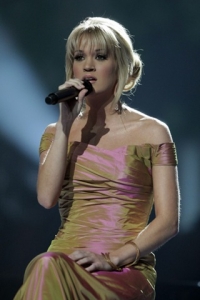 Carrie Marie Underwood (born March 10, 1983 in Muskogee, Oklahoma) is an American country singer-songwriter. She rose to fame as the winner of the fourth season of American Idol, and has become a multi-platinum selling recording artist and a multiple Grammy Award winner. Her debut album, Some Hearts, was certified seven times platinum and is the fastest selling debut country album in Nielsen SoundScan history.
Carrie Marie Underwood (born March 10, 1983 in Muskogee, Oklahoma) is an American country singer-songwriter. She rose to fame as the winner of the fourth season of American Idol, and has become a multi-platinum selling recording artist and a multiple Grammy Award winner. Her debut album, Some Hearts, was certified seven times platinum and is the fastest selling debut country album in Nielsen SoundScan history.Her second album, Carnival Ride, was released on October 23, 2007. It has so far sold about 2 million copies To date, Underwood has sold over 11 million records in the United States. Underwood was inducted as a member of the Grand Ole Opry on May 10, 2008.
Queen
 Queen were an English rock band formed in 1970 in London by guitarist Brian May, lead vocalist Freddie Mercury, and drummer Roger Taylor, with bass guitarist John Deacon completing the lineup the following year. While it is uncertain how many albums the band has sold, estimations range from 130 million to over 300 million albums worldwide.
Queen were an English rock band formed in 1970 in London by guitarist Brian May, lead vocalist Freddie Mercury, and drummer Roger Taylor, with bass guitarist John Deacon completing the lineup the following year. While it is uncertain how many albums the band has sold, estimations range from 130 million to over 300 million albums worldwide.The band is noted for their musical diversity, multi-layered arrangements, vocal harmonies, and incorporation of audience participation into their live performances. Their 1985 Live Aid performance was voted the best live rock performance of all time in an industry poll.
Queen had moderate success in the early 1970s, with the albums Queen and Queen II, but it was with the release of Sheer Heart Attack in 1974 and A Night at the Opera the following year that the band gained international success. They have released fifteen studio albums, five live albums, and numerous compilation albums. Eighteen of these have reached number one on charts around the world.
Following Mercury's death in 1991 and Deacon's retirement later in the decade, May and Taylor have performed infrequently under the Queen name. Since 2005 they have been collaborating with Paul Rodgers, under the moniker Queen + Paul Rodgers.
Romance in The Dark
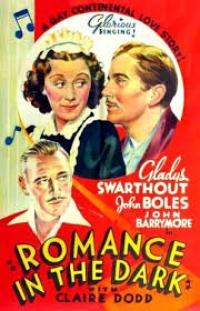 Herman Bahr's German play The Yellow Nightingale from 1907 became Paramount's 1938 entry in the then-popular operetta cycle. Gladys Swarthout, formerly of the Met, stars as Ilona Boros, a peasant girl with a magnificent voice who becomes a pawn in the rivalry between opera tenor Tony Kovach (John Boles) and his business manager Zoltan Jason (John Barrymore). Both men are infatuated with the beautiful, but cold, Countess Foldessy (Claire Dodd), and Tony plans to make Ilona a star so that Jason will be attracted to her instead. The scheme backfires, of course, and soon both men are fighting over Ilona, the outraged countess left to instead pursue Jason's butler, Von Hemisch (Curt Bois).
Herman Bahr's German play The Yellow Nightingale from 1907 became Paramount's 1938 entry in the then-popular operetta cycle. Gladys Swarthout, formerly of the Met, stars as Ilona Boros, a peasant girl with a magnificent voice who becomes a pawn in the rivalry between opera tenor Tony Kovach (John Boles) and his business manager Zoltan Jason (John Barrymore). Both men are infatuated with the beautiful, but cold, Countess Foldessy (Claire Dodd), and Tony plans to make Ilona a star so that Jason will be attracted to her instead. The scheme backfires, of course, and soon both men are fighting over Ilona, the outraged countess left to instead pursue Jason's butler, Von Hemisch (Curt Bois). In between the comedy, Swarthout, Boles, and company perform such well-known selections as "Because," from the opera Jocelyn; "Habanera," from Carmen; "La Ci Darem la Nano," from Don Giovanni; and Ralph Rainger and Leo Robin's "Tonight We Love."
Yiruma
 Yiruma (born February 15 1978, Seoul, Korea) is a South Korean piano music composer. He is married to Son Hye-im.
Yiruma (born February 15 1978, Seoul, Korea) is a South Korean piano music composer. He is married to Son Hye-im.Yiruma is well-known throughout the world, and his albums are sold all over Asia, as well as the United States and Europe. His most famous pieces are "Kiss the Rain", and also "River Flows in You". These pieces are widely mistaken for being associated with the movie Twilight. Although he formerly held dual citizenship as a citizen of the United Kingdom and South Korea, in July 2006 he gave up his British citizenship and entered the Republic of Korea Navy to begin his military service, which is compulsory for all male South Koreans. He has lived in Osaka, Japan for 5 years to promote album sales before giving up his dual citizenship.
Michal Camilo
Phil Collins
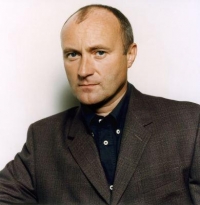 Philip David Charles Collins, LVO (born 30 January 1951 Chiswick, London) is an English singer-songwriter, drummer and actor best known as the lead singer and drummer of English progressive rock group Genesis and as a Grammy and Academy Award-winning solo artist. He has also appeared in several films.
Philip David Charles Collins, LVO (born 30 January 1951 Chiswick, London) is an English singer-songwriter, drummer and actor best known as the lead singer and drummer of English progressive rock group Genesis and as a Grammy and Academy Award-winning solo artist. He has also appeared in several films.Collins sang the lead vocals on eight American chart-toppers between 1984 and 1989; seven as a solo artist and one with Genesis. His singles, often dealing with lost love, ranged from the drum-heavy "In the Air Tonight", to the dance pop of "Sussudio", to the political statements of his most successful song, "Another Day In Paradise". His international popularity transformed Genesis from a progressive rock group to a regular on the pop charts and an early MTV mainstay. Collins' professional career began as a drummer, first with obscure rock group Flaming Youth and then more famously with Genesis. In Genesis, Collins originally supplied backing vocals for front man Peter Gabriel, singing lead on only two songs: "For Absent Friends" from 1971's Nursery Cryme album and "More Fool Me" from Selling England by the Pound, which was released in 1973. On Gabriel's departure in 1975, Collins became the group's lead singer. As the decade closed, Genesis's first international hit, "Follow You, Follow Me", demonstrated a drastic change from the band's early years. His concurrent solo career, heavily influenced by his personal life, brought both him and Genesis commercial success. According to Atlantic Records, Collins' total worldwide sales as a solo artist, as of 2002, were 150 million.
Celine Dion
 Céline Marie Claudette Dion (born March 30, 1968 in Charlemagne, Quebec) is a Canadian singer, and occasional songwriter and actress.
Céline Marie Claudette Dion (born March 30, 1968 in Charlemagne, Quebec) is a Canadian singer, and occasional songwriter and actress.Dion had first gained international recognition in the 1980s by winning both the 1982 Yamaha World Popular Song Festival and the 1988 Eurovision Song Contest.
Dion's music has been influenced by genres ranging from rock and R&B to gospel and classical, and while her releases have often received mixed critical reception, she is renowned for her technically skilled and powerful vocals.
Bruce Springsteen
 Bruce Frederick Joseph Springsteen (born September 23, 1949) is an influential American songwriter, singer and guitarist. He has recorded and toured with the E Street Band. Springsteen is widely known for his brand of heartland rock infused with pop hooks, poetic lyrics, and Americana sentiments centered around his native New Jersey. His eloquence in expressing ordinary, everyday problems has earned him numerous awards, including eighteen Grammy Awards and an Academy Award, along with a notoriously dedicated and devoted global fan base. His most famous albums, Born to Run and Born in the U.S.A., epitomize his penchant for finding grandeur in the struggles of daily life. He has sold over 65 million albums in the U.S.
Bruce Frederick Joseph Springsteen (born September 23, 1949) is an influential American songwriter, singer and guitarist. He has recorded and toured with the E Street Band. Springsteen is widely known for his brand of heartland rock infused with pop hooks, poetic lyrics, and Americana sentiments centered around his native New Jersey. His eloquence in expressing ordinary, everyday problems has earned him numerous awards, including eighteen Grammy Awards and an Academy Award, along with a notoriously dedicated and devoted global fan base. His most famous albums, Born to Run and Born in the U.S.A., epitomize his penchant for finding grandeur in the struggles of daily life. He has sold over 65 million albums in the U.S.Springsteen's lyrics often concern men and women struggling to make ends meet. He has gradually become identified with progressive politics. Springsteen is also noted for his support of various relief and rebuilding efforts in New Jersey and elsewhere, and for his response to the September 11, 2001 attacks, on which his album The Rising reflects.
Springsteen's recordings have tended to alternate between commercially accessible rock albums and somber folk-oriented works. Much of his iconic status stems from the concerts and marathon shows in which he and the E Street Band present intense ballads, rousing anthems, and party rock and roll songs, amongst which Springsteen intersperses long, whimsical or deeply emotional stories.
Springsteen has long had the nickname "The Boss", a term which he was initially reported to hate but now seems to have come to terms with, as he sometimes jokingly refers to himself as such on stage. The nickname originated when a young Springsteen, playing club gigs with a band in the 1960s, took on the task of collecting the band's nightly pay and distributing it amongst his bandmates.
David Bruce
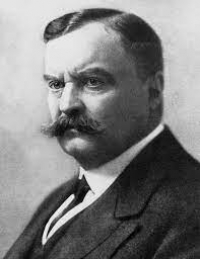 David Bruce (born 1970) is a British composer of contemporary classical music and a YouTuber.Bruce was born in Stamford, Connecticut in 1970, but grew up in England. He began his undergraduate music studies in 1988 at the University of Nottingham, where his composition tutors included Jim Fulkerson and Nicholas Sackman. He continued at the Royal College of Music from 1991 to 1993, where he obtained a master's degree in Composition, studying with Timothy Salter and George Benjamin. He received a PhD in Composition at King's College London between 1995 and 1999, under the supervision of Harrison Birtwistle.
David Bruce (born 1970) is a British composer of contemporary classical music and a YouTuber.Bruce was born in Stamford, Connecticut in 1970, but grew up in England. He began his undergraduate music studies in 1988 at the University of Nottingham, where his composition tutors included Jim Fulkerson and Nicholas Sackman. He continued at the Royal College of Music from 1991 to 1993, where he obtained a master's degree in Composition, studying with Timothy Salter and George Benjamin. He received a PhD in Composition at King's College London between 1995 and 1999, under the supervision of Harrison Birtwistle.
Miklos Rozsa
 Miklós Rózsa (Hungarian: ; 18 April 1907 – 27 July 1995) was a Hungarian-American composer trained in Germany (1925–1931), and active in France (1931–1935), the United Kingdom (1935–1940), and the United States (1940–1995), with extensive sojourns in Italy from 1953. Best known for his nearly one hundred film scores, he nevertheless maintained a steadfast allegiance to absolute concert music throughout what he called his "double life."
Miklós Rózsa (Hungarian: ; 18 April 1907 – 27 July 1995) was a Hungarian-American composer trained in Germany (1925–1931), and active in France (1931–1935), the United Kingdom (1935–1940), and the United States (1940–1995), with extensive sojourns in Italy from 1953. Best known for his nearly one hundred film scores, he nevertheless maintained a steadfast allegiance to absolute concert music throughout what he called his "double life."Rózsa achieved early success in Europe with his orchestral Theme, Variations, and Finale (Op. 13) of 1933 and became prominent in the film industry from such early scores as The Four Feathers (1939) and The Thief of Bagdad (1940). The latter project brought him to America when production was transferred from wartime Britain, and Rózsa remained in the United States, becoming an American citizen in 1946. His notable Hollywood career earned him considerable fame, earning 17 Academy Award nominations including winning for Spellbound (1945), A Double Life (1947), and Ben-Hur (1959), while his concert works were championed by such major artists as Jascha Heifetz, Gregor Piatigorsky, and János Starker.
Stephen Schwartz
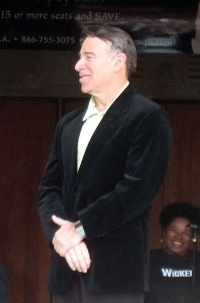 Stephen Lawrence Schwartz (born March 6, 1948) is an American musical theater lyricist and composer. In a career already spanning over four decades, Schwartz has written such hit musicals as Godspell (1971), Pippin (1972) and Wicked (2003). He has also contributed lyrics for a number of successful films, including Pocahontas (1995), The Hunchback of Notre Dame (1996), The Prince of Egypt (1998; music and lyrics) and Enchanted (2007). Schwartz has won the Drama Desk Award for Outstanding Lyrics, three Grammy Awards, and three Academy Awards and has been nominated for six Tony Awards.
Stephen Lawrence Schwartz (born March 6, 1948) is an American musical theater lyricist and composer. In a career already spanning over four decades, Schwartz has written such hit musicals as Godspell (1971), Pippin (1972) and Wicked (2003). He has also contributed lyrics for a number of successful films, including Pocahontas (1995), The Hunchback of Notre Dame (1996), The Prince of Egypt (1998; music and lyrics) and Enchanted (2007). Schwartz has won the Drama Desk Award for Outstanding Lyrics, three Grammy Awards, and three Academy Awards and has been nominated for six Tony Awards.Mia Martini
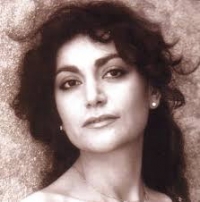 Mia Martini (Italian pronunciation: ; born Domenica Bertè ; 20 September 1947 – 12 May 1995) was an Italian singer.
Mia Martini (Italian pronunciation: ; born Domenica Bertè ; 20 September 1947 – 12 May 1995) was an Italian singer.
Nelly Furtado
 Nelly Kim Furtado (born December 2, 1978) is a Canadian singer-songwriter, record producer, actress and instrumentalist, who also holds Portuguese citizenship.
Nelly Kim Furtado (born December 2, 1978) is a Canadian singer-songwriter, record producer, actress and instrumentalist, who also holds Portuguese citizenship.Furtado came to fame in 2000 with the release of her debut album Whoa, Nelly!, which featured her breakthrough Grammy Award-winning single "I'm like a Bird". After becoming a mother and releasing the less commercially successful Folklore (2003), she returned to prominence in 2006 with the release of Loose and its hit singles "Promiscuous", "Maneater", "Say It Right", and "All Good Things (Come to an End)". Furtado is known for experimenting with different instruments, sounds, genres, vocal styles and languages. This diversity has been influenced by her wide-ranging musical taste and her interest in different cultures.
Beyonce
 Beyoncé Giselle Knowles (born September 4, 1981), commonly known as Beyoncé, is an American R&B singer-songwriter, record producer, and actress. Born and raised in Houston, Texas, she enrolled in various performing arts schools, and was first exposed to singing and dancing competitions as a child. Knowles rose to fame in the late 1990s as the lead singer of R&B girl group Destiny's Child, the best-selling girl group of all time.
Beyoncé Giselle Knowles (born September 4, 1981), commonly known as Beyoncé, is an American R&B singer-songwriter, record producer, and actress. Born and raised in Houston, Texas, she enrolled in various performing arts schools, and was first exposed to singing and dancing competitions as a child. Knowles rose to fame in the late 1990s as the lead singer of R&B girl group Destiny's Child, the best-selling girl group of all time.In June 2003, after a series of commercial successes with the group, Beyoncé released her debut solo album, Dangerously in Love. The album became one of the most successful albums of that year, spawning the number-one singles "Crazy in Love" and "Baby Boy", and earned Knowles five Grammy Awards in a single night in 2004. The formal disbandment of Destiny's Child in 2005 facilitated her continued success as a solo artist. She released her second album, B'Day in 2006, which spawned the UK number-one singles "Déjà Vu" and "Beautiful Liar", as well as the worldwide hit, "Irreplaceable". Knowles has sold 15 million albums and singles worldwide.
The success of her solo albums has established her as one of the most marketable artists in the industry. However, she has also added acting and endorsement deals to her repertoire. In 2006, she starred alongside Steve Martin and Kevin Kline in the comedy The Pink Panther, and that same year, scored the main role in the film adaptation of the 1981 Broadway musical Dreamgirls, which earned her a Golden Globe nomination. Knowles launched her family's fashion line House of Deréon in 2004, and among her many lucrative commercial deals are Pepsi, Tommy Hilfiger, and L'Oréal. Knowles has been with long-time boyfriend Jay-Z since 2002, though they have been discreet about their relationship. After much speculation, they married on April 4, 2008.
Vivaldi
 Antonio Lucio Vivaldi (March 4, 1678 â July 28, 1741), nicknamed il Prete Rosso ("The Red Priest"), was a Venetian priest and Baroque music composer, as well as a famous virtuoso violinist; he was born and raised in the Republic of Venice. The Four Seasons, a series of four violin concerti, is his best-known work and a highly popular Baroque piece.
Antonio Lucio Vivaldi (March 4, 1678 â July 28, 1741), nicknamed il Prete Rosso ("The Red Priest"), was a Venetian priest and Baroque music composer, as well as a famous virtuoso violinist; he was born and raised in the Republic of Venice. The Four Seasons, a series of four violin concerti, is his best-known work and a highly popular Baroque piece.Many of Vivaldi's compositions reflect a flamboyant, almost playful, exuberance. Most of Vivaldi's repertoire was rediscovered only in the first half of the 20th century in Turin and Genoa and was published in the second half. Vivaldi's music is innovative, breaking a consolidated tradition in schemes; he gave brightness to the formal and the rhythmic structure of the concerto, repeatedly looking for harmonic contrasts and innovative melodies and themes. Moreover, Vivaldi was able to compose nonacademic music, particularly meant to be appreciated by the wide public and not only by an intellectual minority. The joyful appearance of his music reveals in this regard a transmissible joy of composing; these are among the causes of the vast popularity of his music. This popularity soon made him famous in other countries such as France which was, at the time, very independent concerning its musical taste.
Vivaldi is considered one of the composers who brought Baroque music (with its typical contrast among heavy sonorities) to evolve into a classical style. Johann Sebastian Bach was deeply influenced by Vivaldi's concertos and arias (recalled in his Johannes Passion, Matthäuspassion, and cantatas). Bach transcribed a number of Vivaldi's concerti for solo keyboard, along with a number for orchestra, including the famous Concerto for Four Violins and Violoncello, Strings and Continuo (RV 580).
Pachelbel
 Johann Pachelbel (baptized September 1, 1653 – buried March 9, 1706) was a German Baroque composer, organist and teacher who brought the south German organ tradition to its peak. He composed a large body of sacred and secular music, and his contributions to the development of the chorale prelude and fugue have earned him a place among the most important composers of the middle Baroque era.
Johann Pachelbel (baptized September 1, 1653 – buried March 9, 1706) was a German Baroque composer, organist and teacher who brought the south German organ tradition to its peak. He composed a large body of sacred and secular music, and his contributions to the development of the chorale prelude and fugue have earned him a place among the most important composers of the middle Baroque era.Pachelbel's work enjoyed enormous popularity during his lifetime; he had many pupils and his music became a model for the composers of south and central Germany. Today, Pachelbel is best known for the Canon in D, the only canon he wrote. In addition to the canon, his most well-known works include the Chaconne in F minor, the Toccata in E minor for organ, and the Hexachordum Apollinis, a set of keyboard variations.
Pachelbel's music was influenced by southern German composers, such as Johann Jakob Froberger and Johann Kaspar Kerll, Italians such as Girolamo Frescobaldi and Alessandro Poglietti, French composers, and the composers of the Nuremberg tradition. Pachelbel preferred a lucid, uncomplicated contrapuntal style that emphasized melodic and harmonic clarity. His music is less virtuosic and less adventurous harmonically than that of Dieterich Buxtehude, although, like Buxtehude, Pachelbel experimented with different ensembles and instrumental combinations in his chamber music and, most importantly, his vocal music, much of which features exceptionally rich instrumentation. Pachelbel explored many variation forms and associated techniques, which manifest themselves in various diverse pieces, from sacred concertos to harpsichord suites.
Evita
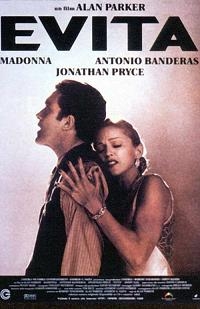 Evita is the film adaptation of Andrew Lloyd Webber's musical based on the life of Eva Perón. It was directed by Alan Parker and starred Madonna, Antonio Banderas and Jonathan Pryce. It was released on December 25, 1996 by Hollywood and Cinergi Pictures.
Evita is the film adaptation of Andrew Lloyd Webber's musical based on the life of Eva Perón. It was directed by Alan Parker and starred Madonna, Antonio Banderas and Jonathan Pryce. It was released on December 25, 1996 by Hollywood and Cinergi Pictures.
Bill Evans
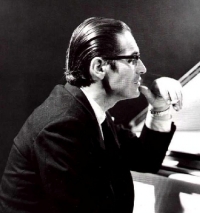 William John Evans, known as Bill Evans (August 16, 1929 – September 15, 1980) was an American jazz pianist. His use of impressionist harmony, inventive interpretation of traditional jazz repertoire, and trademark rhythmically independent, "singing" melodic lines influenced a generation of pianists, including Chick Corea, Herbie Hancock, John Taylor, Steve Kuhn, Don Friedman, Denny Zeitlin, Bobo Stenson and Keith Jarrett, as well as guitarists Lenny Breau and Pat Metheny. The music of Bill Evans continues to inspire younger pianists like Marcin Wasilewski, Fred Hersch, Ray Reach, Bill Charlap, Lyle Mays, Eliane Elias and arguably Brad Mehldau, early in his career.
William John Evans, known as Bill Evans (August 16, 1929 – September 15, 1980) was an American jazz pianist. His use of impressionist harmony, inventive interpretation of traditional jazz repertoire, and trademark rhythmically independent, "singing" melodic lines influenced a generation of pianists, including Chick Corea, Herbie Hancock, John Taylor, Steve Kuhn, Don Friedman, Denny Zeitlin, Bobo Stenson and Keith Jarrett, as well as guitarists Lenny Breau and Pat Metheny. The music of Bill Evans continues to inspire younger pianists like Marcin Wasilewski, Fred Hersch, Ray Reach, Bill Charlap, Lyle Mays, Eliane Elias and arguably Brad Mehldau, early in his career.Evans is an inductee of the Down Beat Jazz Hall of Fame.
Taylor Swift
 Taylor Alison Swift (born December 13, 1989) is an American country-pop singer-songwriter. In 2006, she released her debut single "Tim McGraw", which peaked at number six on the Billboard country charts. Later in October 2006, she released her self-titled debut album, which produced five hit singles on the Billboard Hot Country Songs charts and was certified 3× Multi-Platinum by the RIAA. The New York Times described Swift as "one of pop's finest songwriters, country’s foremost pragmatist and more in touch with her inner life than most adults".
Taylor Alison Swift (born December 13, 1989) is an American country-pop singer-songwriter. In 2006, she released her debut single "Tim McGraw", which peaked at number six on the Billboard country charts. Later in October 2006, she released her self-titled debut album, which produced five hit singles on the Billboard Hot Country Songs charts and was certified 3× Multi-Platinum by the RIAA. The New York Times described Swift as "one of pop's finest songwriters, country’s foremost pragmatist and more in touch with her inner life than most adults".According to Nielsen SoundScan, Swift was the biggest selling artist of 2008 in America with combined sales of more than four million albums. Swift's Fearless and her self-titled album finished 2008 at number three and number six respectively, with sales of 2.1 and 1.5 million. She was the first artist in the history of Nielsen SoundScan to have two different albums in the Top 10 on the year end album chart. Fearless has topped the Billboard 200 in 11 non-consecutive weeks. No album has spent more time at number one since 1999-2000. It also was the first album by a female artist in country music history to log eight weeks at #1 on The Billboard 200. In mid-January 2009, Swift became the first country artist to top the 2 million mark in paid downloads with three different songs. As of the week ending February 8, 2009, Swift's single "Love Story" became the country song with most paid downloads in history and the first country song to top the Mainstream Top 40 chart. According to the 2009 issue of Forbes, Swift is ranked as the 69th most powerful celebrity with over $18 million dollars in earnings this year.
Eric Coates
 Eric Coates (27 August 1886 – 21 December 1957) was an English composer of light music and a viola player.
Eric Coates (27 August 1886 – 21 December 1957) was an English composer of light music and a viola player.
Jamiroquai
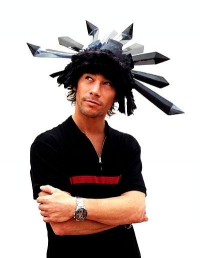 Jamiroquai is a Grammy Award-winning English acid jazz/funk/soul band. Jamiroquai was initially the most prominent component in the early-1990s London-based acid jazz movement, alongside groups such as Incognito, the Brand New Heavies, Galliano, and Corduroy. Subsequent albums have explored other musical directions such as, but not limited to, pop, rock and electronica. Jamiroquai has sold over 2.5 million records in the United States alone and over 21 million records all over the world.
Jamiroquai is a Grammy Award-winning English acid jazz/funk/soul band. Jamiroquai was initially the most prominent component in the early-1990s London-based acid jazz movement, alongside groups such as Incognito, the Brand New Heavies, Galliano, and Corduroy. Subsequent albums have explored other musical directions such as, but not limited to, pop, rock and electronica. Jamiroquai has sold over 2.5 million records in the United States alone and over 21 million records all over the world.The band name is a blend of Jam session and "iroquai", based on the Iroquois, a Native American tribe. The lineup of the band has changed several times, and the longest serving and now core members of the band are lead singer and songwriter Jason "Jay" Kay and drummer Derrick McKenzie (1994). Despite his self-professed attempts to treat Jamiroquai as a band, Kay has always been at the forefront of how the group is marketed, and has therefore always had the lion's share of media attention, to the point where he is viewed as almost a solo artist. He was the impetus behind the formation of Jamiroquai, deciding to form the band after an unsuccessful audition to become the singer of the Brand New Heavies.
Michel Camilo
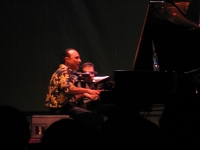 Michel Camilo (born April 4, 1954) is a pianist and composer from Santo Domingo, Dominican Republic. He is known as a great jazz, Latin and classical pianist with superb technical ability, and has played and recorded with many world-famous musicians. Michel lists some of his main influences as Chick Corea, Keith Jarrett, Oscar Peterson, Bill Evans, and Art Tatum.
Michel Camilo (born April 4, 1954) is a pianist and composer from Santo Domingo, Dominican Republic. He is known as a great jazz, Latin and classical pianist with superb technical ability, and has played and recorded with many world-famous musicians. Michel lists some of his main influences as Chick Corea, Keith Jarrett, Oscar Peterson, Bill Evans, and Art Tatum.Edgar Winter
 Edgar Holland Winter (born December 28, 1946) is an American rock and blues musician. He is known for being a multi-instrumentalist — keyboardist, guitarist, saxophonist and percussionist — as well as a singer. His success peaked in the 1970s with his band, The Edgar Winter Group, and their popular songs "Frankenstein" and "Free Ride".
Edgar Holland Winter (born December 28, 1946) is an American rock and blues musician. He is known for being a multi-instrumentalist — keyboardist, guitarist, saxophonist and percussionist — as well as a singer. His success peaked in the 1970s with his band, The Edgar Winter Group, and their popular songs "Frankenstein" and "Free Ride".
Mariah Carey
 Mariah Carey (born March 27, 1970) is an American singer, songwriter, record producer, and actress. She made her recording debut in 1990 under the guidance of Columbia Records executive Tommy Mottola, and became the first recording artist to have her first five singles top the U.S. Billboard Hot 100 chart. Following her marriage to Mottola in 1993, a series of hit records established her position as Columbia's highest-selling act. According to Billboard magazine, she was the most successful artist of the 1990s in the United States.
Mariah Carey (born March 27, 1970) is an American singer, songwriter, record producer, and actress. She made her recording debut in 1990 under the guidance of Columbia Records executive Tommy Mottola, and became the first recording artist to have her first five singles top the U.S. Billboard Hot 100 chart. Following her marriage to Mottola in 1993, a series of hit records established her position as Columbia's highest-selling act. According to Billboard magazine, she was the most successful artist of the 1990s in the United States.Following her separation from Mottola in 1997, Carey introduced elements of hip hop into her album work, to much initial success, but her popularity was in decline when she left Columbia in 2001, and she was dropped by Virgin Records the following year after a highly publicized physical and emotional breakdown, as well as the poor reception given to Glitter, her film and soundtrack project. In 2002, Carey signed with Island Records, and after a relatively unsuccessful period, she returned to pop music in 2005.
Carey was named the best-selling female pop artist of the millennium at the 2000 World Music Awards. She has had the most number-one singles for a solo artist in the United States (eighteen; second artist overall behind The Beatles), where, according to the Recording Industry Association of America, she is the third best-selling female and sixteenth overall recording artist. In addition to her commercial accomplishments, Carey has earned five Grammy Awards, and is well-known for her vocal range, power, melismatic style, and use of the whistle register.
Jule Styne
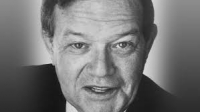 Jule Styne (/ˈdʒuːli staɪn/; December 31, 1905 – September 20, 1994) was a British-American song writer and composer known for a series of Broadway musicals, which include several famous and frequently revived shows.
Jule Styne (/ˈdʒuːli staɪn/; December 31, 1905 – September 20, 1994) was a British-American song writer and composer known for a series of Broadway musicals, which include several famous and frequently revived shows.
Whitesnake
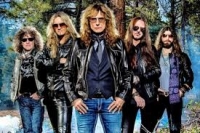 Whitesnake are an English hard rock band formed in 1978 by David Coverdale, after his departure from his previous band Deep Purple. Their early material has been compared by critics to the blues rock of Deep Purple, but they slowly began moving toward a more commercially accessible rock style. By the turn of the decade, the band's commercial fortunes changed and they released a string of UK top 10 albums, Ready an' Willing (1980), Come an' Get It (1981), Saints & Sinners (1982) and Slide It In (1984), the last of which was their first to chart in the US and is certified 2x platinum.
Whitesnake are an English hard rock band formed in 1978 by David Coverdale, after his departure from his previous band Deep Purple. Their early material has been compared by critics to the blues rock of Deep Purple, but they slowly began moving toward a more commercially accessible rock style. By the turn of the decade, the band's commercial fortunes changed and they released a string of UK top 10 albums, Ready an' Willing (1980), Come an' Get It (1981), Saints & Sinners (1982) and Slide It In (1984), the last of which was their first to chart in the US and is certified 2x platinum.The band's 1987 self-titled album was their most commercially successful worldwide, and contained two major US hits, "Here I Go Again" and "Is This Love", reaching number one and two on the Billboard Hot 100. The album went 8 times platinum in the US, and the band's success saw them nominated for the 1988 Brit Award for Best British Group. Slip of the Tongue (1989), was also a success, reaching the top 10 in the UK and the US, and received a platinum US certification. The band split up shortly after this release, but had a reunion in 1994, and released a one-off studio album, Restless Heart (1997).
Whitesnake officially reformed in 2002 and have been touring together since, releasing three albums, Good to Be Bad (2008), Forevermore (2011) and The Purple Album (2015). In 2005, Whitesnake were named the 85th greatest hard rock band of all time by VH1.
Vitezslav Novak
 Vítězslav Novák (5 December 1870 – 18 July 1949) was a Czech composer and pedagogue. Stylistically, he was part of the neoromantic tradition, and his music has been occasionally considered an early example of Czech modernism.
Vítězslav Novák (5 December 1870 – 18 July 1949) was a Czech composer and pedagogue. Stylistically, he was part of the neoromantic tradition, and his music has been occasionally considered an early example of Czech modernism.
Chopin
 Frédéric Chopin (1 March 1810 – 17 October 1849) was a Polish composer and virtuoso pianist of the Romantic period. He is widely regarded as the greatest Polish composer, and ranks as one of music's greatest tone poets.
Frédéric Chopin (1 March 1810 – 17 October 1849) was a Polish composer and virtuoso pianist of the Romantic period. He is widely regarded as the greatest Polish composer, and ranks as one of music's greatest tone poets.He was born in the village of Żelazowa Wola, in the Duchy of Warsaw, to a Polish mother and French-expatriate father, and in his early life was regarded as a child-prodigy pianist. In November 1830, at the age of 20, Chopin went abroad; following the suppression of the Polish November Uprising of 1830–31, he became one of many expatriates of the Polish "Great Emigration."
In Paris, he made a comfortable living as a composer and piano teacher, while giving few public performances. A Polish patriot,
Chopin's extant compositions were written primarily for the piano as a solo instrument. Though technically demanding, Chopin's style emphasizes nuance and expressive depth rather than virtuosity. Chopin invented musical forms such as the ballade and was responsible for major innovations in forms such as the piano sonata, waltz, nocturne, étude, impromptu and prelude. His works are mainstays of Romanticism in 19th-century classical music.
3 Doors Down
 3 Doors Down is an American rock band formed in 1994 in Escatawpa, Mississippi by Brad Arnold (vocals and drums), Matt Roberts (guitar) and Todd Harrell (bass). The band signed to Universal Records after the success of their song "Kryptonite". The band has since sold well over 15 million albums worldwide since their debut album, The Better Life, which was released in 2000. They also perform more than 300 concerts a year and have shared the stage with other artists such as Tantric, Lynyrd Skynyrd, Staind, Nickelback, Alter Bridge, Breaking Benjamin, Econoline Crush, Hinder, Seether, Shinedown, Finger Eleven, and Daughtry. Hit song It's Not My Time is featured in the video game NHL 09.
3 Doors Down is an American rock band formed in 1994 in Escatawpa, Mississippi by Brad Arnold (vocals and drums), Matt Roberts (guitar) and Todd Harrell (bass). The band signed to Universal Records after the success of their song "Kryptonite". The band has since sold well over 15 million albums worldwide since their debut album, The Better Life, which was released in 2000. They also perform more than 300 concerts a year and have shared the stage with other artists such as Tantric, Lynyrd Skynyrd, Staind, Nickelback, Alter Bridge, Breaking Benjamin, Econoline Crush, Hinder, Seether, Shinedown, Finger Eleven, and Daughtry. Hit song It's Not My Time is featured in the video game NHL 09.
Yann Tiersen
 Guillaume Yann Tiersen (born 23 June 1970) is a French musician and composer known internationally for composing the score to the Jean-Pierre Jeunet movie Amélie. His music is recognized by its use of a large variety of instruments in relatively minimalist compositions, often with a touch of either European classical music or French folk music, using primarily the piano, accordion or violin together with instruments like the melodica, xylophone, toy piano, ondes martenot, harpsichord and typewriter. His musical style is reminiscent of Frédéric Chopin, Erik Satie, Philip Glass and Michael Nyman.
Guillaume Yann Tiersen (born 23 June 1970) is a French musician and composer known internationally for composing the score to the Jean-Pierre Jeunet movie Amélie. His music is recognized by its use of a large variety of instruments in relatively minimalist compositions, often with a touch of either European classical music or French folk music, using primarily the piano, accordion or violin together with instruments like the melodica, xylophone, toy piano, ondes martenot, harpsichord and typewriter. His musical style is reminiscent of Frédéric Chopin, Erik Satie, Philip Glass and Michael Nyman.
Lady Gaga
 Lady Gaga (born Stefani Joanne Angelina Germanotta on March 28, 1986) is an American recording artist. She began performing in the rock music scene of New York City's Lower East Side. She soon signed with Streamline Records, an imprint of Interscope Records, upon its establishment in 2007. During her early time at Interscope, she worked as a songwriter for fellow label artists and captured the attention of Akon, who recognized her vocal abilities, and had her also sign to his own label, Kon Live Distribution.
Lady Gaga (born Stefani Joanne Angelina Germanotta on March 28, 1986) is an American recording artist. She began performing in the rock music scene of New York City's Lower East Side. She soon signed with Streamline Records, an imprint of Interscope Records, upon its establishment in 2007. During her early time at Interscope, she worked as a songwriter for fellow label artists and captured the attention of Akon, who recognized her vocal abilities, and had her also sign to his own label, Kon Live Distribution.Her debut album, The Fame, was released on August 19, 2008. In addition to receiving generally positive reviews, it reached number-one in Canada, Austria, Germany, and Ireland and topped the Billboard Top Electronic Albums chart. Its first two singles, "Just Dance" and "Poker Face", co-written and co-produced with RedOne, became international number-one hits, topping the Hot 100 in the United States as well as other countries. The album later earned a total of six Grammy Award nominations and won awards for Best Electronic/Dance Album and Best Dance Recording. In early 2009, after having opened for New Kids on the Block and the Pussycat Dolls, she embarked on her first headlining tour, The Fame Ball Tour. By the fourth quarter of 2009, she released her second studio album The Fame Monster, with the global chart-topping lead single "Bad Romance", as well as having embarked on her second headlining tour of the year, The Monster Ball Tour.
Lady Gaga is inspired by glam rock musicians such as David Bowie and Freddie Mercury, as well as pop music artists such as Madonna and Michael Jackson. She has also stated fashion is a source of inspiration for her songwriting and performances. To date, she has sold over eight million albums and over thirty-five million singles worldwide.
Robert Cuccioli
 Robert Cuccioli (born May 3, 1958) is an American actor and singer born in Hempstead, New York. He is best known for originating the lead dual title roles in the musical Jekyll and Hyde, for which he received a Tony Award nomination and won the Joseph Jefferson Award, the Outer Critics Circle Award, the Drama Desk Award, and the Fany Award.
Robert Cuccioli (born May 3, 1958) is an American actor and singer born in Hempstead, New York. He is best known for originating the lead dual title roles in the musical Jekyll and Hyde, for which he received a Tony Award nomination and won the Joseph Jefferson Award, the Outer Critics Circle Award, the Drama Desk Award, and the Fany Award.After beginning his career Off-Broadway in the 1980s, Cuccioli starred as Lancelot de Lac in national tours of Camelot in 1987 and first appeared on Broadway later that year as Javert in Les Misérables. He has appeared in numerous New York and regional productions since then, including Jekyll and Hyde (1997) and Spider-Man: Turn Off the Dark, from 2012.
John Coltrane
 John William "Trane" Coltrane (September 23, 1926 – July 17, 1967) was an American jazz saxophonist and composer.
John William "Trane" Coltrane (September 23, 1926 – July 17, 1967) was an American jazz saxophonist and composer.Working in the bebop and hard bop idioms early in his career, Coltrane helped pioneer the use of modes in jazz and later was at the forefront of free jazz. He was prolific, making about fifty recordings as a leader during his recording career, and appeared as a sideman on many other albums, notably with trumpeter Miles Davis and pianist Thelonious Monk. As his career progressed, Coltrane's music took on an increasingly spiritual dimension. His second wife was pianist Alice Coltrane, and their son Ravi Coltrane is also a saxophonist.
He influenced innumerable musicians, and remains one of the most significant tenor saxophonists in jazz history. He received many awards, among them a posthumous Special Citation from the Pulitzer Prize Board in 2007 for his "masterful improvisation, supreme musicianship and iconic centrality to the history of jazz."
Elvis Presley
 Elvis Aaron Presley (January 8, 1935–August 16, 1977, middle name sometimes written Aron)a was an American singer, musician and actor. A cultural icon, he is commonly referred to as the "The King of Rock 'n' Roll" or "The King".
Elvis Aaron Presley (January 8, 1935–August 16, 1977, middle name sometimes written Aron)a was an American singer, musician and actor. A cultural icon, he is commonly referred to as the "The King of Rock 'n' Roll" or "The King".In 1954, Presley began his career as the first performer of rockabilly, an uptempo fusion of country and rhythm and blues with a strong back beat. His novel versions of existing songs, mixing "black" and "white" sounds, made him popular—and controversial—as did his uninhibited stage and television performances. He recorded songs in the rock and roll genre, with tracks like "Hound Dog" and "Jailhouse Rock" later embodying the style. Presley had a versatile voice and had unusually wide success encompassing other genres, including gospel, blues, ballads and pop. To date, he has been inducted into four music halls of fame.
In the 1960s, Presley made the majority of his thirty-one movies—mainly poorly reviewed, but financially successful, musicals. In 1968, he returned with acclaim to live music in a television special, and thereafter performed across the U.S., notably in Las Vegas. Throughout his career, he set records for concert attendance, television ratings and recordings sales. He is one of the best-selling and most influential artists in the history of popular music. Health problems, drug dependency and other factors led to his premature death at age 42.
Klaus Badelt
 Klaus Badelt (born 1968) is a German composer, best known for composing film scores.
Klaus Badelt (born 1968) is a German composer, best known for composing film scores.Badelt was born in Frankfurt, Germany. He started his musical career composing for many successful movies and commercials in his homeland. In 1998, Oscar-winning film composer Hans Zimmer invited Badelt to work at Media Ventures in Santa Monica, his studio co-owned by Jay Rifkin. Since then, Badelt has been working on a number of his own film and television projects such as The Time Machine and K-19: The Widowmaker. He has also collaborated with other Media Ventures composers, such as Harry Gregson-Williams, John Powell, and Zimmer.
While collaborating with Zimmer, Badelt has contributed to the Oscar-nominated scores for The Thin Red Line and The Prince of Egypt, as well as writing music for many well known directors including Ridley Scott, Tony Scott, Terrence Mallick, John Woo, Kathryn Bigelow, Jeffrey Katzenberg, Tom Cruise, Sean Penn, Gore Verbinski, and Steven Spielberg.
Badelt co-produced the score to Hollywood box office hit Gladiator, directed by Ridley Scott, as well as writing portions of the score with singer/composer Lisa Gerrard. Having contributed music to Gladiator, Mission: Impossible 2 and Michael Kamen's score for X-Men, Badelt was involved in the three most successful movies in 2000. Badelt also collaborated with Zimmer on other successful films, such as The Pledge, and 2001 blockbusters Hannibal and Pearl Harbor. One of his more famous - and more popular - scores is the score to the 2003 film Pirates of the Caribbean: The Curse of the Black Pearl.
Among Badelt's most critically celebrated scores are the Chinese fantasy film The Promise and Dreamworks' remake of The Time Machine, the latter which earned him the Discovery of the Year Award at the World Soundtrack Awards 2003.
ABBA
 ABBA was a Swedish Eurovision Song Contest-winning pop music group active between 1972 and 1982. Benny Andersson, Björn Ulvaeus, Anni-Frid Lyngstad (Frida), Agnetha Fältskog are in ABBA. They topped the charts worldwide from the mid-1970s to the early 1980s. The name "ABBA" is an acronym formed from the first letters of each of the group member's given name (Agnetha, Björn, Benny, Anni-Frid).
ABBA was a Swedish Eurovision Song Contest-winning pop music group active between 1972 and 1982. Benny Andersson, Björn Ulvaeus, Anni-Frid Lyngstad (Frida), Agnetha Fältskog are in ABBA. They topped the charts worldwide from the mid-1970s to the early 1980s. The name "ABBA" is an acronym formed from the first letters of each of the group member's given name (Agnetha, Björn, Benny, Anni-Frid).ABBA gained immense international popularity employing catchy song hooks, simple lyrics, and a Wall of Sound achieved by overdubbing the female singers' voices in multiple harmonies. As their popularity grew, they were sought-after to tour Europe, Australia, and North America, drawing crowds of near-hysterical fans ("ABBAholics"), notably in Australia. Touring became a contentious issue, being particularly unpopular with Agnetha, but they continued to release studio albums to great commercial success. At the height of their popularity, however, both marriages of the band members (Benny with Frida, and Björn with Agnetha) failed, and the relationship changes were reflected in their music, as they produced more thoughtful lyrics with different compositions.
They remain a fixture of radio playlists and are one of the world's best selling bands, having sold around 400 million records world wide; The music of ABBA has been re-arranged into the successful musical Mamma Mia! that has toured worldwide and a movie version was released in July 2008. All four of the former members of ABBA were present at the Stockholm premieres of both the musical (2005) and the film (2008). The film première took place at the Benny Andersson-owned Rival theatre at Mariatorget, Stockholm on 4 July 2008.
Andrew Lloyd Webber
 Andrew Lloyd Webber, Baron Lloyd-Webber (born 22 March 1948) is an English composer of musical theatre, the elder son of organist William Lloyd Webber and brother of the cellist Julian Lloyd Webber. Lloyd Webber started composing at the age of six, and published his first piece at the age of nine.
Andrew Lloyd Webber, Baron Lloyd-Webber (born 22 March 1948) is an English composer of musical theatre, the elder son of organist William Lloyd Webber and brother of the cellist Julian Lloyd Webber. Lloyd Webber started composing at the age of six, and published his first piece at the age of nine.Lloyd Webber has achieved great popular success, with several musicals that have run for more than a decade both in the West End and on Broadway. He has composed 13 musicals, a song cycle, a set of variations, two film scores, and a Latin Requiem Mass. He has also gained a number of honours, including a knighthood in 1992, followed by a peerage from the British Government for services to Music, seven Tony Awards (and 40 nominations), three Grammy Awards (with an additional 60 nominations), an Academy Award (two other nominations), seven Olivier Awards (with 100 nominations), a Golden Globe, and the Kennedy Center Honors in 2006. Several of his songs, notably "The Music of the Night" from The Phantom of the Opera, "I Don't Know How to Love Him" from Jesus Christ Superstar, "Don't Cry for Me, Argentina" from Evita, "Any Dream Will Do" from Joseph and the Amazing Technicolor Dreamcoat and "Memory" from Cats have been widely recorded and were hits outside of their parent musicals. His company, the Really Useful Group, is one of the largest theatre operators in London.
Producers in several parts of the UK have staged productions, including national tours, of Lloyd Webber's musicals under licence from the Really Useful Group. According to britishhitsongwriters.com, he is the one hundredth most successful songwriter in U.K. singles chart history, based on weeks that his compositions have spent on the chart.
Search for Free Sheet Music
You can make a search through the entire collection of sheets.
You can make a search through the entire collection of sheets.






